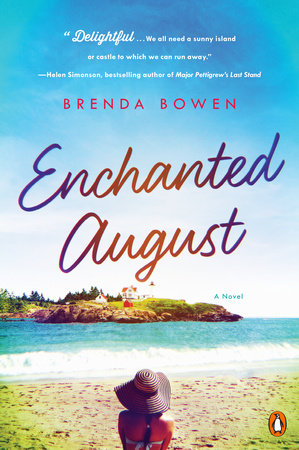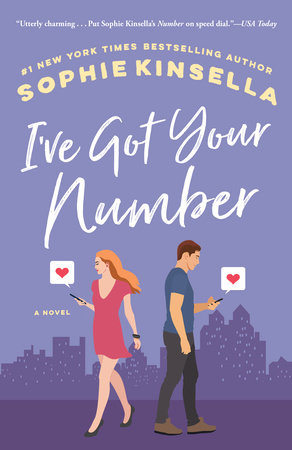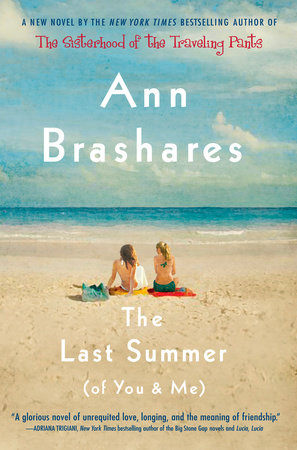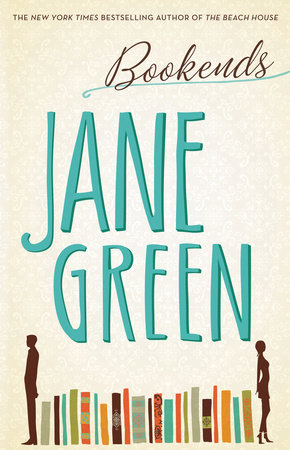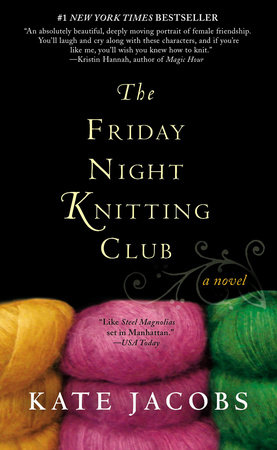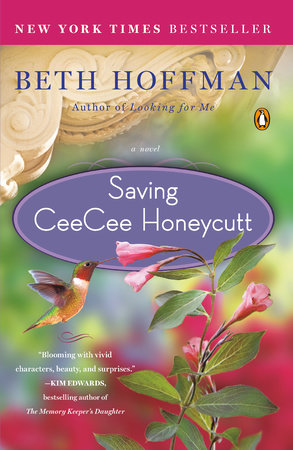Author Q&A
A Conversation with Brenda Bowen
1. What inspired you to write a retelling of The Enchanted April? What did you keep from the original story and what did you change?
As a literary agent, I often give ideas to my authors or illustrators that I think might make good books. After seeing the movie Enchanted April over and over, and reading the book over and over, I thought someone should retell this as a story set in the present. I began writing a “story starter” to see if the idea was even viable. My story starter, which was going to be only about a page or two, turned into ten pages, then fifteen, then fifty. And after that, I had to keep going.
When I started writing the manuscript, I called it April, Enchanted. I kept the idea of a spring break, but I had the characters go to an island in the Caribbean rather than to Italy. (There are a lot of books about people vacationing in Italy!) That proved difficult for me because while I had visited a Caribbean island, the place was not in my blood: I didn’t know it. I talked to my own literary agent, the wonderful Faith Hamlin, about whether I could take the characters up to Maine, maybe for two weeks, to a place I know well. She said, “Take ’em up there, and leave ’em up there a month, and then show me what you’ve got.” So I did.
People who’ve read Elizabeth von Arnim’s glorious book may recognize some lines or phrases transplanted directly from her book to mine. She was brilliant at dialogue and description, and some exchanges and lines were just too good not to redeploy. In Enchanted August, Caroline Dester muses reflexively about the tyranny of fashion: “You don’t take your clothes to events . . . they take you.” (page 44). Von Arnim wrote that in The Enchanted April in 1922—yet how easy it is to imagine a Hollywood star saying the same thing today.
The biggest change I made was in the character of Beverly Fisher. You’ll have to read the book to find out what I did with Beverly. . . .
2. What advantages does the multiple point of view narration offer you as the storyteller? How did you go about creating distinct voices?
It’s pretty Victorian to write a book in the third person with an omniscient narrator, which is how The Enchanted April is written. There are no line breaks to indicate a change in narration: The point of view shifts fluidly from one point of view to another, often within a sentence. Since I was reinterpreting an established novel, I didn’t want to stray too far. The story really could not have been told all from a single character’s point of view.
I departed from Von Arnim’s style somewhat in that I allowed the POV to be sustained for several pages, even a chapter at a time. It allowed me to show more about the thoughts and motivations of a character. Plus, it was fun to stay with Jon through his “Kraken” scene, and important to stay with Rose when she finds out what really brought Fred to the island. Multiple points of view encourage the reader to sympathize with each character. I wanted all the characters to be understood.
Beverly and Caroline were easy voices to create. Beverly is based on a great friend of mine; Caroline is a cross between people I’ve met professionally and family friends I grew up with in England (where I lived from age six to sixteen). Rose and Lottie were harder to keep distinct. An early reader suggested that one of them have a vocal tic—saying “like” a lot, or clearing her throat before talking—but I couldn’t come up with anything convincing. Instead, I tried to make Lottie’s diction less precise than Rose’s, and Rose’s observations more contemplative than Lottie’s. Jon’s just a blusterer, Fred’s a bounder, and Robert’s language (and handwriting) belongs to someone I know and love (only he plays the clavichord, not the lute).
3. The characters who meet on the island (Lottie, Rose, Beverly, and Caroline) each come with their own isolated problems and concerns. But slowly, their time on the island seems to whittle away that anxiety and help them cross social boundaries. What is it about the landscape that helps them do this?
Anyone who’s been lucky enough to spend time on a small island will recognize how much the rhythm of the place affects the people there. The very first thing that happens on a Maine island is that you very quickly become a subject of nature: the weather, the tides, the sunrise and sunset —they all have meaning. Within a day or two, you’re exhausted by the time it gets dark; 9 P.M. feels like midnight. Rain feels like just another manifestation of the water that surrounds you (which of course it is), so it’s no trouble to be out in it. The tides make it harder or easier to do everything, from walking along the shore to unpacking your boat. Nature is a great equalizer, and surrendering yourself to your environment, living with and in it instead of trying to ignore or overcome it, does a lot to make anxiety recede.
Not to mention: Everything gets easier on vacation.
4. The sense of place both physical and cultural is an essential dimension of Enchanted August. How much of your own Maine experience comes into the story, and how much of the setting was imagined?
It’s all real. I spend as much of August as I can renting a beloved cottage with a breathtaking view on a small island off the coast of Maine. We don’t do the Hopewell thing of listing the cottage owners by longevity on our island (though another island does: You know who you are), but we do have every luxury a Maine island affords: spring water, sea glass, blueberries.
Here’s my ideal day on my own Hopewell Island: Get up early. Make coffee very quietly so as not to wake up the cottage. Heat up a sticky bun from the farmers’ market; vow to eat only half. Sit on the porch with coffee and sticky bun. Break vow. Watch the water. Pick up a book from the cottage bookshelves and dip in. Go inside and realize three hours have passed.
Put on some clothes, many of which are the same as clothes worn yesterday. Walk to the other side of the island in the sun. Watch the kids play tennis with the olds. Knit a little. Eat something for lunch. Read on the porch: I am very susceptible to the latest summer novel, or else I’m rereading a favorite classic, like The Great Gatsby or Vilette (great book; bad title). Or my darling Mary Wesley. Notice there are no more sticky buns; bake a blueberry cake for tomorrow.
Maybe take the boat in to town to buy groceries. Go to a friend’s cottage to contribute to a communal feast, usually involving fresh fish on the grill and always vegetables from the garden. Also pie. Eat. Talk. Drink. Walk home under the stars with no flashlight, if it’s not too dark. Go to bed early. Get up with the first bird and do it all over again.
5. There’s romance in this book, but much of it involves rekindling old flames despite newer temptations. How are your characters’ journeys to rediscovering love perhaps different from the typical summer romance tropes we so often see?
I wish I knew who came up with a phrase that particularly resonates with me. I first read it in a film review. The reviewer described the plot as “the story of a broken family trying to heal itself.” I love that phrase: a broken family trying to heal itself. The characters in Enchanted August are doing just that. They’re trying to heal their own families while creating a new one: the Hopewell Cottage family, even if they don’t realize it. Falling back in love with your own husband or wife—or with your own life—is harder than having a summer fling. That’s why this story of Elizabeth von Arnim’s was so interesting to me, and why I think it’s timeless.
P.S.: Robert and Caroline’s story is more of a traditional summer romance; let’s just hope it lasts!
6. You also deftly capture the bittersweet ache of parenthood (and pet ownership!). What are your thoughts on the portrayal of mothers in contemporary fiction? How did that inform your writing process?
Gosh, I have no idea what I think about the portrayal of mothers in contemporary fiction. I was only thinking about my own experience when I wrote the book. It’s so easy to feel completely at sea as a new mother. You’ve never done it before, you screw up all the time, it’s overwhelming . . . and you’re usually so good at everything. And then there’s so much pressure to provide the best for your children, and you don’t know whether the best for your children means speech therapy and Mandarin lessons, or just giving them more hugs.
7. You write children’s books and you’ve also worked as a children’s publisher before making your adult debut. What fundamental differences and similarities do you see between the stories marketed to these age groups?
Everybody likes to read a good story. I try to provide a good story for any age reader. One of the authors I’ve worked with, the brilliant Virginia Euwer Wolff, kept on her bulletin board “Faulkner’s Six,” or in Faulkner’s words, “the old universal truths lacking which any story is ephemeral and doomed.” I’m obviously no Faulkner, but those six words are always at the top of my mind. Here they are:
Love
Honor
Pity
Pride
Compassion
Sacrifice
I hold those words as a yardstick for my early readers, for my chapter books, and for my adult novels. Of course I fall short, but it is a very good measure to keep at one’s side.
8. If this book was left on the library shelves of Hopewell Cottage, which of your characters would enjoy it most and why?
If this book was on the library shelves of Hopewell Cottage, any one of the characters would pick it up: It has a dynamite cover (thanks, Pamela Dorman Books!).
Who would read it, though? Not Beverly—Beverly is not much of a reader. Words swim on the page. Jon would say he’d read it, even if he hadn’t. Fred would throw it across the room out of a) exasperation that it’s not literary enough or b) professional jealousy, because it actually contains three sentences that he wishes he had written himself. Caroline Dester would read it in a day, out in the sun, and it would amuse her greatly. Rose might give it a few chapters, but the cottage bookshelves would be full of hoary classics, and she’d prefer to get on with them. Lottie would put it on her long, but neglected, reading list for when she got home. And Robert SanSouci would sit, absorbed, in his horsehair chair on the third floor, underlining passages that remind him uncannily of someone he knows, without recognizing himself.
